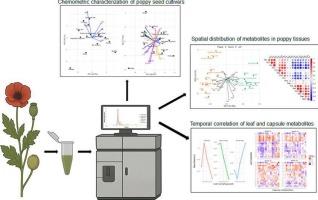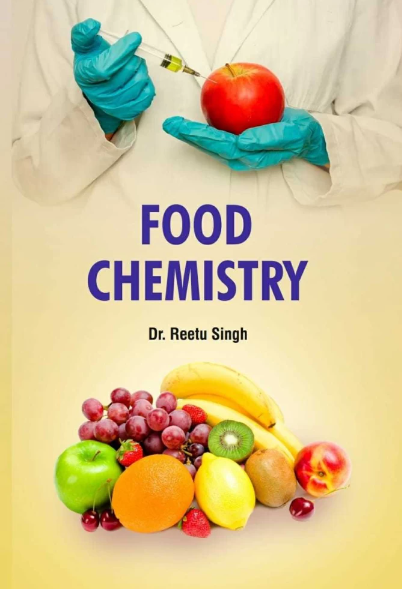高通量HILIC-UHPLC-MS/MS方法用于木瓜生物碱的多组织分析:方法开发和化学型预测
IF 9.8
1区 农林科学
Q1 CHEMISTRY, APPLIED
引用次数: 0
摘要
建立了一种快速、灵敏的hplc -MS/MS同时定量木瓜组织中苯基异喹啉类生物碱的方法,并进行了验证。该方法仅使用5 mg的干燥植物材料,在4.5 min内完全分离出6种主要生物碱,回收率高,基质效应最小,在种子、叶片和蒴果间具有良好的重现性。对15个食品级罂粟品种的应用表明,在糖、脂肪酸和酚类分析的支持下,种子存在显著的化学型变异。叶片和胶囊的时间过程分析揭示了不同的组织特异性代谢趋势,叶片是生物碱的生物合成源,胶囊是生物碱的主要汇。第13周的叶片代谢物强烈预测胶囊中最终生物碱含量,为早期筛选提供了非破坏性策略。这种高通量工作流程支持食品级罂粟的化学分型,品种筛选和质量控制。它的灵敏度和低投入使其成为食品中生物碱研究和监管监测的理想选择。本文章由计算机程序翻译,如有差异,请以英文原文为准。

A high-throughput HILIC-UHPLC-MS/MS approach for multi-tissue profiling of alkaloids in Papaver somniferum: Method development and chemotypic prediction
A rapid and sensitive HILIC-UHPLC-MS/MS method was developed and validated for the simultaneous quantification of benzylisoquinoline alkaloids in Papaver somniferum tissues. The method fully separates six major alkaloids within 4.5 min using only 5 mg of dry plant material, with high recovery, minimal matrix effects, and excellent reproducibility across seeds, leaves, and capsules. Application to 15 food-grade poppy cultivars revealed significant chemotypic variation in seeds, as supported by profiling sugars, fatty acids, and phenolics. Time-course analysis in leaves and capsules uncovered distinct tissue-specific metabolic trends, with leaves serving as biosynthetic sources and capsules as primary sinks of alkaloids. Leaf metabolites at week 13 strongly predicted final alkaloid content in capsules, offering a non-destructive strategy for early screening. This high-throughput workflow supports chemotyping, cultivar screening, and quality control in food-grade poppy. Its sensitivity and low input make it ideal for both research and regulatory monitoring of alkaloids in food products.
求助全文
通过发布文献求助,成功后即可免费获取论文全文。
去求助
来源期刊

Food Chemistry
工程技术-食品科技
CiteScore
16.30
自引率
10.20%
发文量
3130
审稿时长
122 days
期刊介绍:
Food Chemistry publishes original research papers dealing with the advancement of the chemistry and biochemistry of foods or the analytical methods/ approach used. All papers should focus on the novelty of the research carried out.
 求助内容:
求助内容: 应助结果提醒方式:
应助结果提醒方式:


